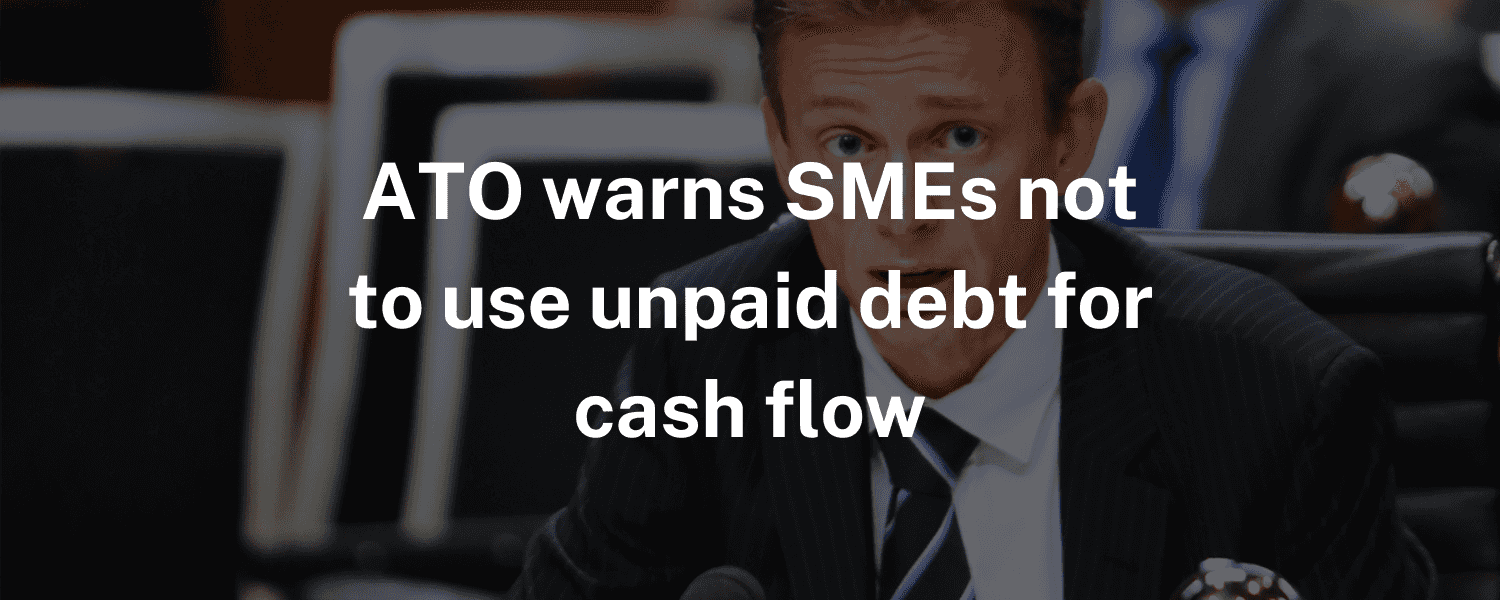ATO Issues Warning: Small Businesses Urged to Halt Reliance on Unpaid Taxes for Cash Flow
ATO Issues Warning: Small Businesses Urged to Halt Reliance on Unpaid Taxes for Cash Flow
Jeremy Hirschhorn, Second Commissioner of the Australian Tax Office (ATO), has raised concerns about a growing trend among small business operators who are using unpaid tax and superannuation liabilities as a means to support their cash flow. The ATO is intensifying its scrutiny of this practice, with plans for stronger compliance action in 2024.
Rising Reliance on Unpaid Taxes
Hirschhorn, a potential successor to the outgoing Commissioner Chris Jordan, is set to address the Financial Review CFO Live Summit on Tuesday. He reveals that more than two-thirds of the ATO's $50 billion in collectable debt is currently owed by small businesses. The tax gap for small businesses is reported to be 13 percent, significantly higher than the 4.2 percent gap observed in large companies.
Behavioral Shift Amid the Pandemic
Hirschhorn notes that during the pandemic, the ATO took a more lenient audit stance with individuals and small businesses. However, since late 2021, the ATO has observed a shift in behavior concerning the priority of paying tax and super. There is growing concern about the increased reliance on unpaid tax and super to bolster the cash flow of certain businesses.
ATO's Response and Actions
While the ATO aims to collaborate with business operators to recover tax liabilities, Hirschhorn asserts that officials can report debt information to credit reporting bureaus if engagement is lacking. Since July, the ATO has shared debt information on over 10,500 businesses with significantly overdue and undisputed tax debts exceeding $100,000.
Alarming Debt Increase
The ATO's recent annual report reveals an 89 percent increase in the debt book over the four years to 2023, reaching $50.2 billion by June 30. Despite net tax collections in 2022-23 totaling $576.2 billion, an increase of nearly 12 percent over the previous year, small businesses consistently maintain the largest tax gap.
Digital-First Ecosystem Initiative
Hirschhorn emphasizes the ATO's ambition to build a digital-first ecosystem to assist small businesses in complying with their tax and super obligations. This involves greater integration of ATO systems with the natural systems of businesses to facilitate tax reporting and payment closer to the tax event.
Warning to Large Corporates and Multinationals
While acknowledging the challenging economic conditions, Hirschhorn warns large corporate and public organizations, especially those engaging in profit shifting and tax avoidance, that increased compliance scrutiny is inevitable. He asserts that for businesses operating in this space, it's not a matter of if, but when they will be subject to investigation.
Government's Commitment to Addressing Competition Issues
Assistant Minister for Competition, Charities, and Treasury, Andrew Leigh, will also address the Summit. He emphasizes the government's commitment to addressing the deterioration in competition in Australia in recent decades. Leigh sees a dynamic and competitive economy as crucial for managing change, building resilience, and effectively addressing cost-of-living pressures while laying the foundations for future growth.

